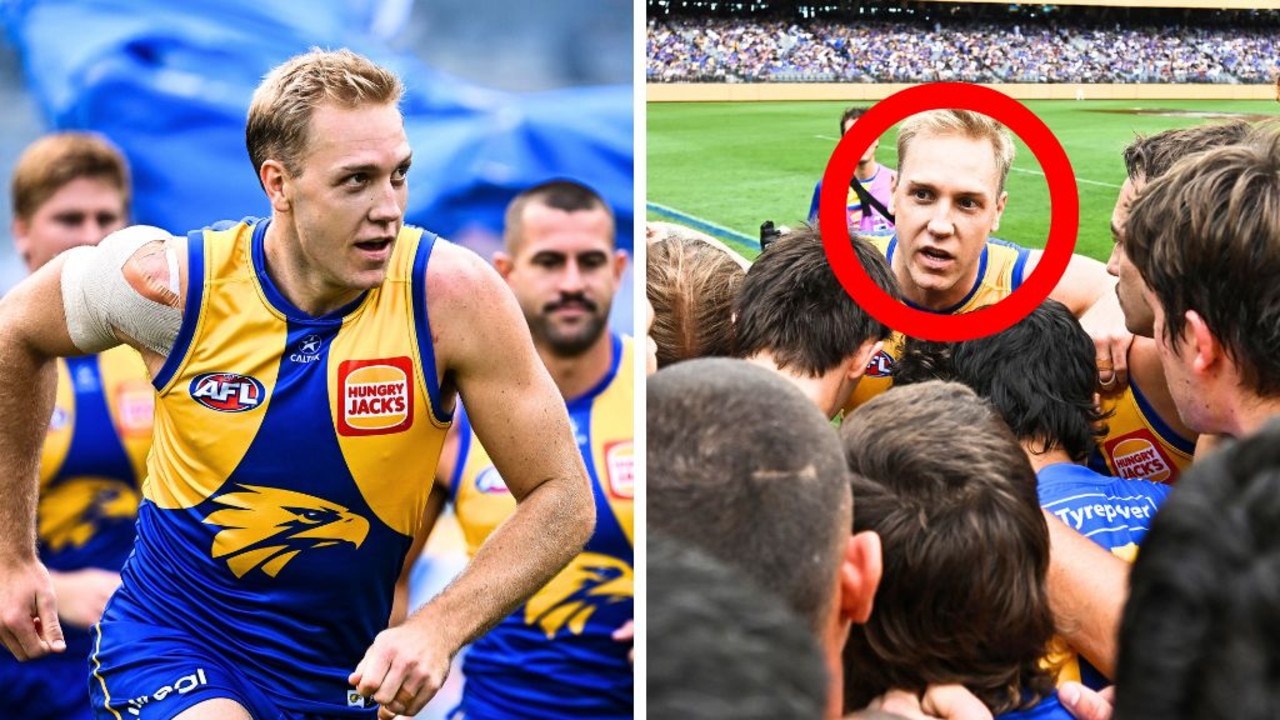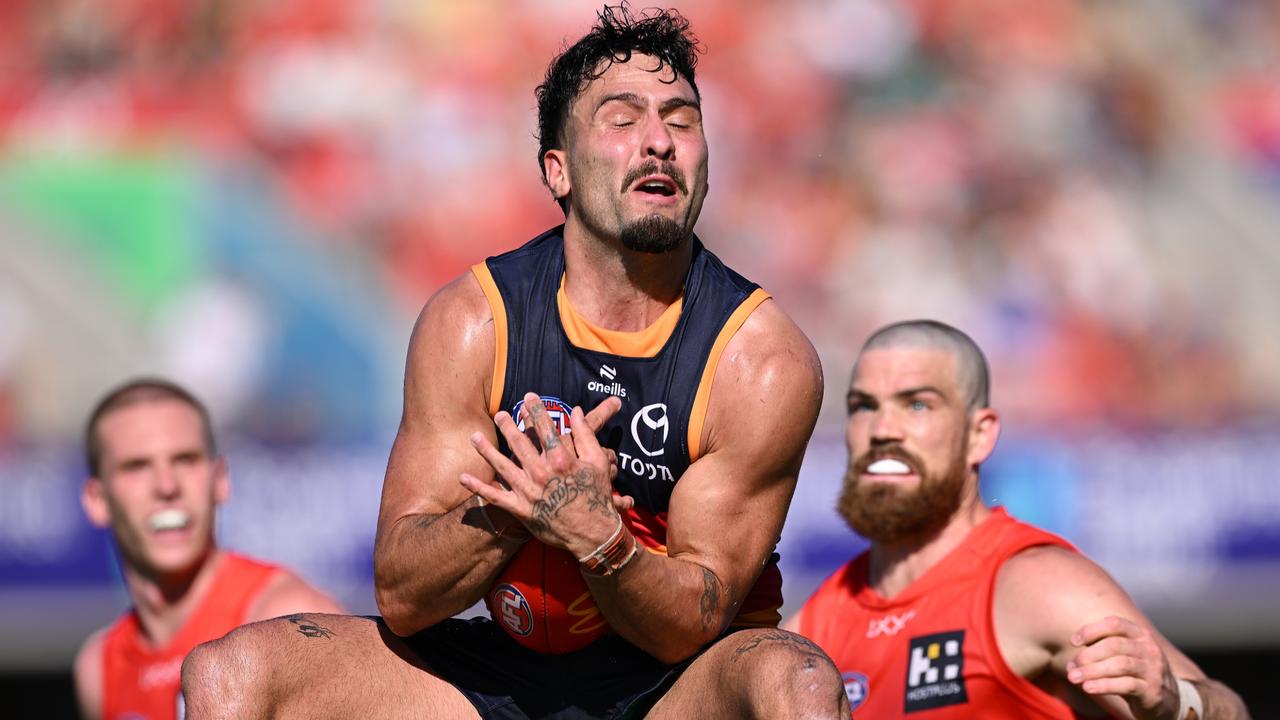Jay Clark: The AFL’s assistant coaches have officially become footy’s forgotten men
It’s official AFL assistant coaches are footy’s forgotten men – and frustration has reached boiling point. JAY CLARK finds out just how big the issue is.
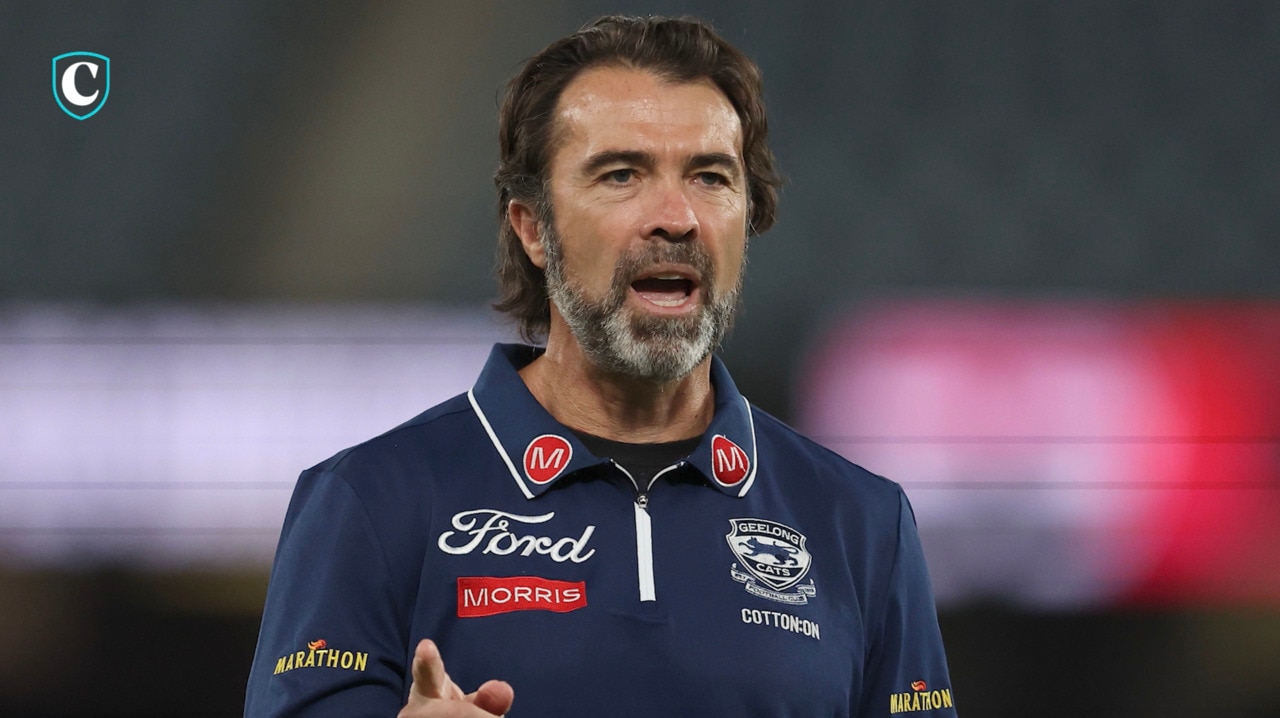
AFL
Don't miss out on the headlines from AFL. Followed categories will be added to My News.
The AFL’s coaching cohort is fed up and frustrated.
Amid the outstanding growth in the game, record attendances and membership and a $45.4 million profit for the AFL last year, the people carrying the clipboards each weekend have officially become footy’s forgotten men.
Exclusive data shows assistant coaches wages have increased by an average rate of only 1.9 per cent from 2010 to 2025, less than the 2.68 per cent average inflation rate over the same period, according to the AFL Coaches’ Association.
Port Adelaide coach Ken Hinkley this week told the Herald Sun “It is an embarrassment for the game to think that this has gone on” over the past 15 years.
Even worse, the average development coach wage has increased by only 1.29 per cent, or a staggeringly low total of $21,000 all up despite the game’s riches over the past 15 years.
That is in comparison to the average players’ wages which has soared from $214,000 in 2010 to $493,000 last year within a skyrocketing salary cap.
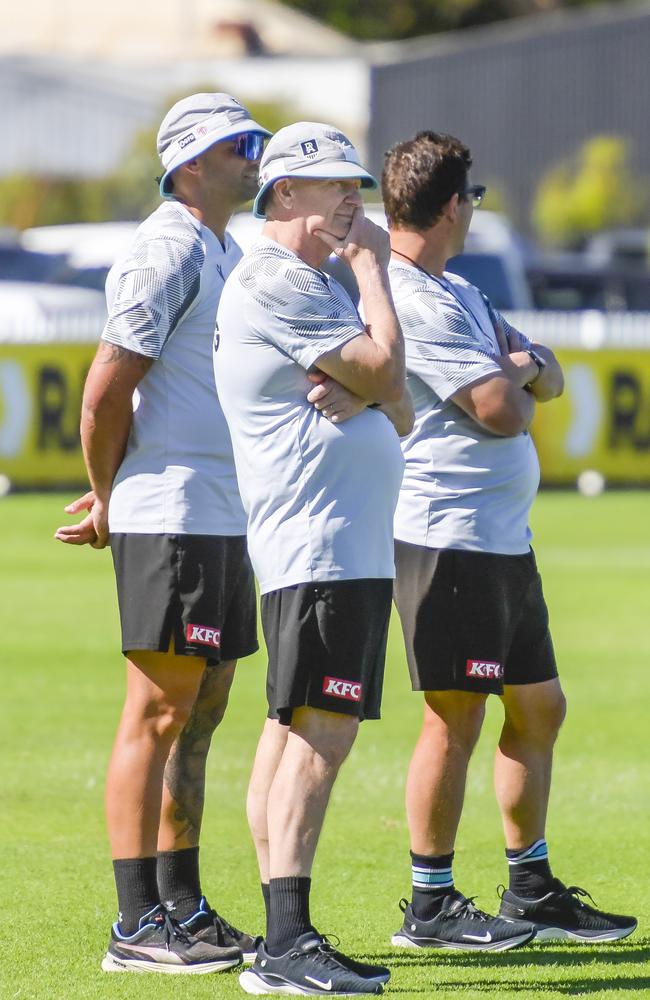
In a survey of 27 of the most experienced assistant coaches in the game, the Herald Sun can reveal not one participant said they felt they were fairly and appropriately remunerated amid players’ increasing welfare demands, media and broadcast commitments, flimsy job security and what they have described as searing public scrutiny.
Plus, there’s the extensive weekend and travel commitments, family pressures, state league commitments and increased hours which have all turned the previous appeals of an AFL coaching job on its head.
Western Bulldogs’ premiership coach Luke Beveridge said his coaching lieutenants also doubled as counsellors for the playing group at times.
“These people are critical. I lean on them so heavily. And it’s not just the (on-field) coaching element, it’s the welfare and psych space,” Beveridge said.
“The mental and physical wellbeing of a player has never been more important and coaches are looking after players from a holistic life perspective.
“You need high-end practitioners. If you can’t find them or you can’t keep them, the responsibility just flows on to someone who hasn’t got the capacity.”
And the coaching talent pool has shrunk as senior coaching figureheads consider their next steps and a possible “reckoning” if the AFL doesn’t commit to an industry framework in negotiations with the AFL Coaches Association in the next few months.
Unlike players and umpires, coaches do not have a collective bargaining agreement with the league.
Frustration has reached boiling point, with one senior figure labelling assistant coaching wages “blatant disrespect to some of the most important people in the game” following a $3 million COVID-19 soft cap wipe-out in 2021.
Another highly-respected figure contacted by the Herald Sun said the lack of growth and recognition for assistant coaches since then was “a joke”.
“The anger is palpable now,” one senior figure said.
The football department soft cap has been slashed from $9.7 million in 2020 to $7.675 million this year, with $200,000-a-year increases in place for each of the next two years considered “lip service”.
“The AFL said the cap would bounce back after Covid, and it hasn’t. It is a disgrace,” a footy boss said.
In the AFL CA survey of experienced senior coaches, only seven per cent said they felt well-regarded by the AFL.
Collingwood champion Scott Pendlebury, who has long been considered a senior coach in the making, could instead follow champions of the game such as Luke Hodge and Joel Selwood into other industries when his playing career finishes, such as media and business.
The Pendlebury decision is considered a tipping point for the sport for a man who has long been considered the number one candidate for senior coaching from the current playing ranks.
Likewise, Fagan said he had encouraged Hodge to join the coaching ranks, but admitted one of the most respected and successful player leaders in the game’s recent history had little interest.
It means the previous appeal of one of the most coveted jobs in the game has dried up to the point where the football’s champions were turning off the potential of a coaching profession in worrying numbers.
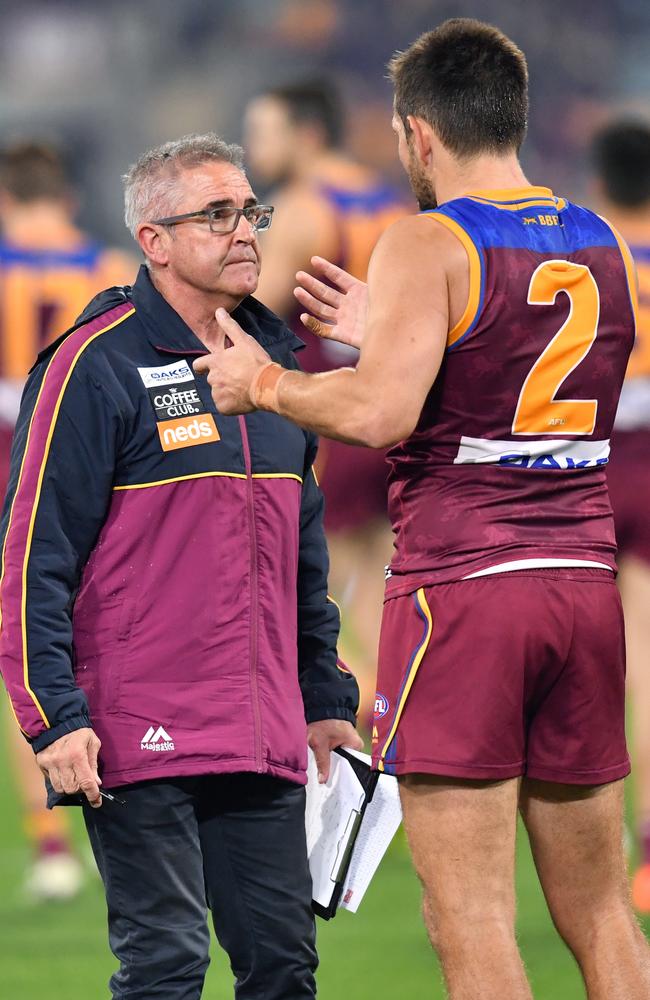
“I thought he (Hodge) would make a great coach,” Fagan said.
“He said ‘I can work a day in the media and I’ve got my own business things going and have a good life’.
“Why would I want that (coaching) if all I do is cop criticism?
“The reality is coaching is pretty insecure because it is a high-risk occupation, and if it is not working out for the team, the senior coach gets it in the neck, and they (assistants) often do, too.
“They need to be looked after in a better way.
“The time has come. What business in the world does not look after the department which is most responsible for producing the product (other than the players)?
“The spending in the business sector is back up to pre-Covid levels but for the coaches and football department it has just been the slowest grind of all time.”
And it comes at a time when the AFL has lauded the quality of the game and skills of the stars, the evenness of the competition, and the commitment of its participants on the back of “one of our biggest football calendar years of all time”, according to AFL chairman Richard Goyder.
And the season has been expanded to include the money-spinning Gather Round and Opening Round which begins the season one week earlier than usual.
Footy is raking in the cash.
But currently, the coaches are the only group to miss out on some of the spoils, despite increased work commitments.
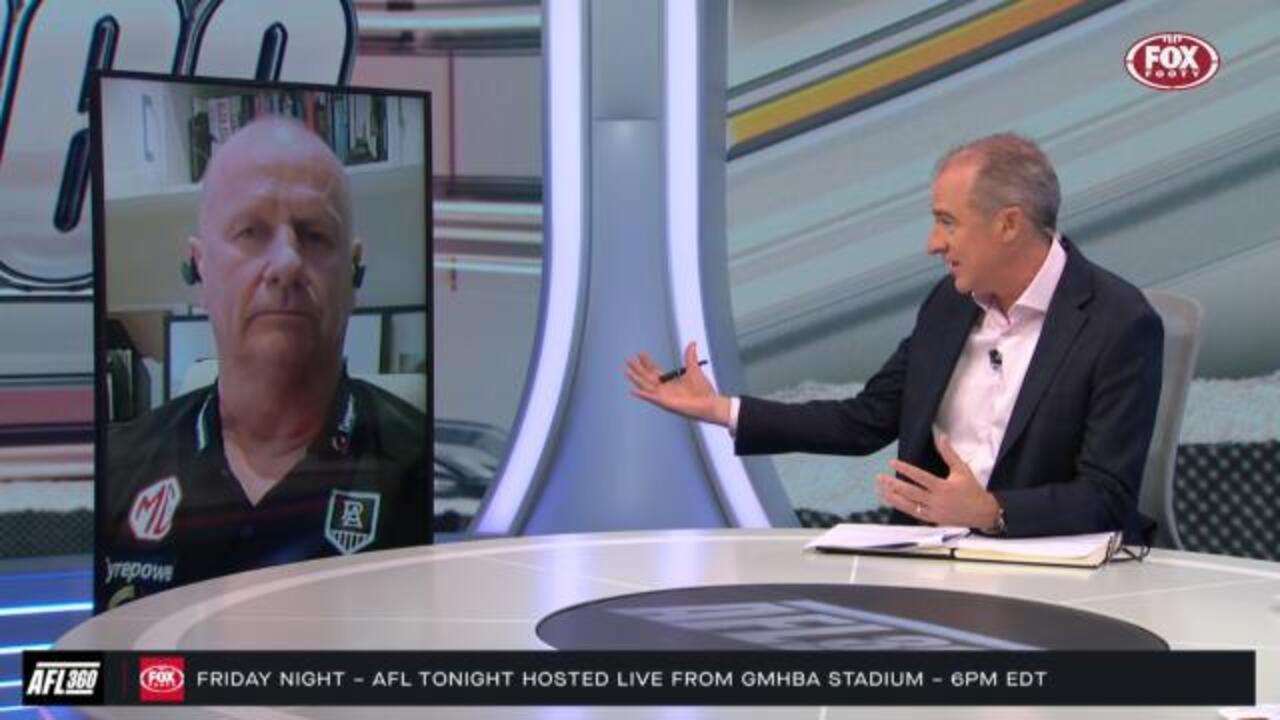
In the AFL CA survey, 36 per cent of experienced assistant coaches rated their mental health as either average, poor or quite poor.
A total of 85 per cent said the job was more difficult than it was in the past.
Hinkley said the AFL would have to face the consequences of leaving the coaches out to dry over the past decade-and-a-half.
“It is really obvious to me now that people are not choosing that pathway like they used to 15 years ago,” Hinkley said.
“If that pathway is shrinking and continues to shrink, the quality goes down.
“The performance is not to the same level, and players do not get the care they need and deserve and the game becomes poorer because of it.
“I think that is indisputable. It gets poorer.
“So, on one hand the game celebrates the better television rights and the attendances and memberships, and that is only happening because the product is so good and close and tight and passionate.
“How do you protect the people who are dealing with all that passion?”
Hinkley said the daily intensive scrutiny weighed heavily on coaches.
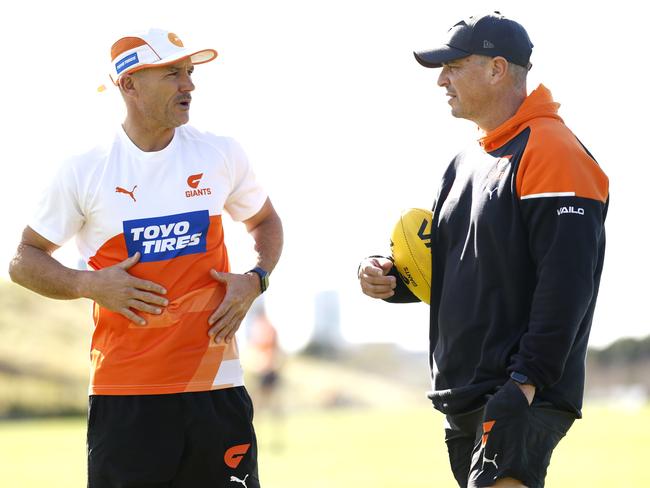
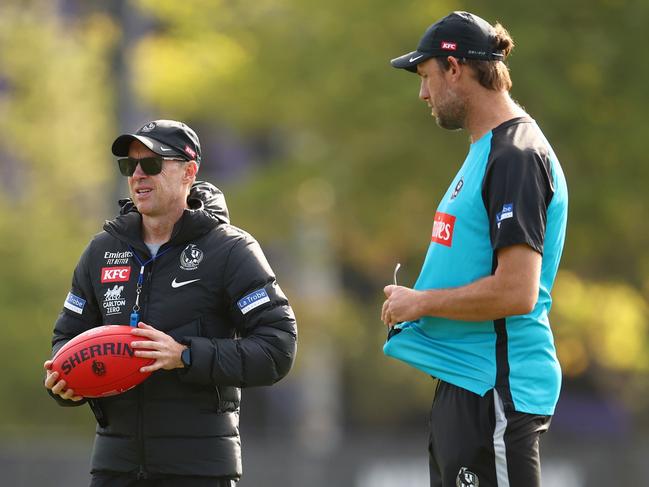
Sydney Swans topped the ladder after the home-and-away season but lost senior coach John Longmire last year, while the Power finished second and agreed to a succession plan which will farewell Hinkley at season’s end.
“Sydney and Port finished one and two (after 24 rounds) and we both found it too hard,” Hinkley said.
“The AFL should come in and walk in the shoes of the assistants so they can understand and appreciate the rollercoaster that can go with it.
“Their weeks and livelihoods and their day-to-day living is constantly revolving around the success of the footy team.
“See if it is worth it, as much as you like it.
“It’s unforgiving. The pressure that comes with a bad year. The money doesn’t justify what you do and go through.”
Hinkley said the AFL mistakenly “expect that just anyone can do it”.
“It’s that far from the truth it’s not funny,” he said.
Beveridge said the welfare support requirements for players in the modern game – which were often shouldered by the coaching group – were through the roof due to the intensive spotlight on the game.
He said any belief the coaches’ role was simply tactical was well short of the mark.
He said the Bulldogs ‘wingman’ program, which was a duty of care service to players, underlined the coaches’ commitments to players’ lives, development and welfare off the field.
“I’m happy to tell you what ours is called, it’s the ‘wingman’ program. Every club has got one,” he said.
“What happens is they (coaches) are looking after players from a life perspective.
“And they’re having conversations about how they are coping away from the club or relationships and acting in a sense like a friend, an uncle, father or brother.
“When you have reduced or not as experienced people who haven’t got the background to be fully equipped … players don’t suffer fools.
“So they need practitioners in there who are very good at what they do.
“That is why as far as the remuneration goes it should be weighted accordingly.”

One senior assistant coach said they could earn “the same money in the normal world with half the work and no level of stress.”
Another added: “I love the job but the AFL doesn’t treat the occupation with respect. As a result, a much lower group of people are coming through coaching now than a generation ago.”
AFL Coaches’ Association chief executive Alistair Nicholson will soon ramp up talks with the AFL over a six-pronged plan to better reward coaches and help safeguard their futures in the game.
In particular, termination clauses are one of the major “stress points” given the volatile nature of the football industry and high turnover of staff.
In 2022, former St Kilda coach Brett Ratten was sacked with two years to run on his contract.
Less than one year later Gold Coast coach Stuart Dew was booted with 18 months to run on his deal.
Currently, 70 per cent of assistants have three months or less in their termination clauses, driving up anxiety.
Nicholson said assistant coaches’ conditions were not in-line with the workload, pressure and scrutiny they faced daily.
“Assistant coaches and development coaches have really been forgotten,” Nicholson said.
“This is how they feel. They feel fed up and frustrated.
“This is what some of the senior coaches are trying to do, engage the AFL leadership.
“Like Chris Fagan talking to the (AFL) Commission and saying this absolutely needs to be a priority how we are looking after this group and remuneration is a part of it.
“There are also other things such as termination and a whole package that is involved with being a long-term coach in the AFL.
“The game needs to afford it just because of how important they are. Think about the prioritisation.
“The coaches drive the on-field product, they’re the faces of the club.
“They engage in the membership and they also run the culture and the values among the player group so they are absolutely critical.
“Why are we not putting more into this and making it more attractive?”
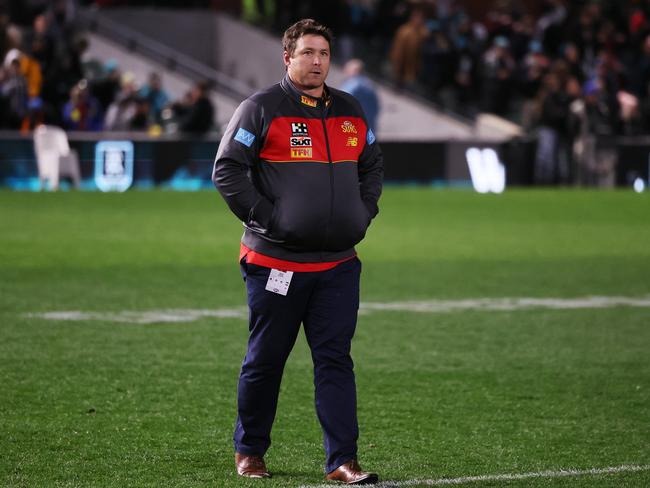
Nicholson said it was time for a framework to help make the coaches conditions more consistent across the competition as part of a “three-to-five year plan”.
“We have got to work together on this. What we have proposed to the AFL is an industry strategy for the coaching profession so there is some change and some things are mandated, so it can be followed through,” Nicholson said.
“We need to get aligned on what is our vision and purpose for AFL and AFLW coaching to create the best optimal environment.
“We have got six pillars that will stand the test of time where we can put initiatives in and align with the industry and improve the overall profession.
“It needs to be more co-ordinated and aligned with each stakeholder playing their role.
“If you are going to walk away from that, there are going to be consequences.”
Originally published as Jay Clark: The AFL’s assistant coaches have officially become footy’s forgotten men


